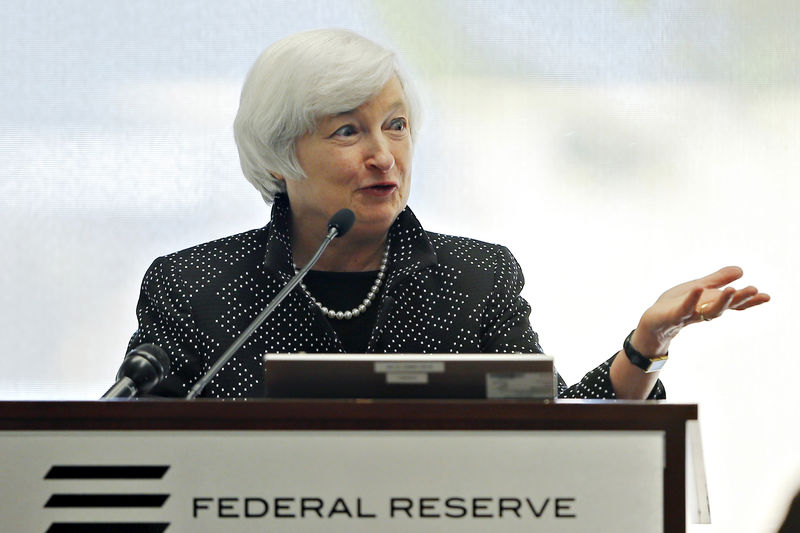Investing.com - In the week ahead, market players will be turning their attention to the outcome of the Federal Reserve’s latest policy meeting on Wednesday amid uncertainty over the timing of the next rate move.
Traders will also be awaiting monetary policy announcements from central banks in Japan, Switzerland and the U.K. on Thursday.
Ahead of the coming week, Investing.com has compiled a list of the five biggest events on the economic calendar that are most likely to affect the markets.
1. Fed June meeting
The Fed is due to make its latest monetary policy announcement at the conclusion of its two-day Federal Open Market Committee meeting on Wednesday.
The U.S. central bank is expected to keep interest rates on hold after the employment report for May showed the slowest rate of jobs growth since September 2010.
The Fed also to publish its latest economic forecasts and Chair Janet Yellen is to speak at what will be a closely watched press conference.
2. U.S. inflation data
The Labor Department is to publish the inflation report for May at 0830ET on Thursday.
The consumer price index is expected to have risen by 0.3% last month after a 0.4% gain in April, which was the fastest increase in more than three years.
3. Central bank policy reviews
The Bank of Japan is to announce its latest monetary policy decision at the conclusion of its policy meeting on Thursday. The BoJ kept monetary policy steady in April, surprising many investors who had bet on more easing and sending the yen higher.
Investors are expecting no change from the Swiss National Bank and the Bank of England at their rate announcements later on Thursday.
4. U.K. employment report
The Office for National Statistics is to publish its latest U.K. employment report on Wednesday.
Last month data showed that the number of people unemployed fell by 2,000 in the three months to March, while the unemployment rate held steady at 5.1%.
Investors will be looking for indications that uncertainty over whether Britain will remain in the European Union or not at a referendum on June 23 is affecting the labor market.
5. U.K. inflation data
The ONS is to release figures on consumer inflation for May on Tuesday.
U.K. consumer prices fell 0.3% in April, the first decline seven months, largely due to cheaper air fares after the Easter holidays.
The BoE said last month that it expects inflation to increase in the second half of this year.
Stay up-to-date on all of this week's economic events by visiting: http://www.investing.com/economic-calendar/
